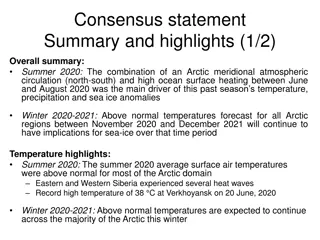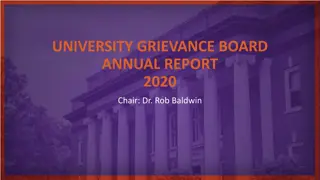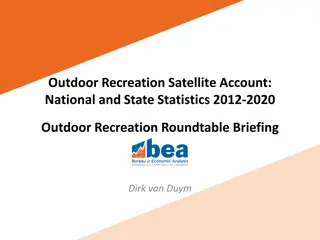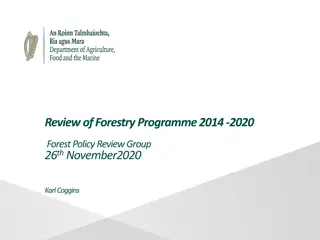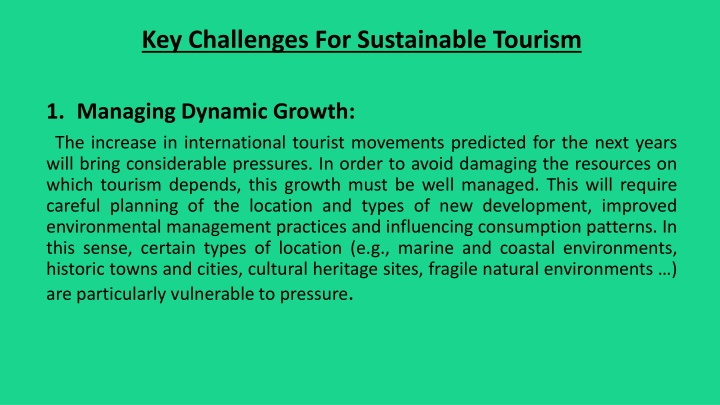
Key Challenges for Sustainable Tourism Growth and Conservation
Discover the key challenges facing sustainable tourism, including managing dynamic growth, climate change impacts, poverty alleviation efforts, support for conservation initiatives, and the importance of health, safety, and security in travel. Learn about the pressing issues shaping the future of sustainable tourism worldwide.
Download Presentation

Please find below an Image/Link to download the presentation.
The content on the website is provided AS IS for your information and personal use only. It may not be sold, licensed, or shared on other websites without obtaining consent from the author. If you encounter any issues during the download, it is possible that the publisher has removed the file from their server.
You are allowed to download the files provided on this website for personal or commercial use, subject to the condition that they are used lawfully. All files are the property of their respective owners.
The content on the website is provided AS IS for your information and personal use only. It may not be sold, licensed, or shared on other websites without obtaining consent from the author.
E N D
Presentation Transcript
Key Challenges For Sustainable Tourism 1. Managing Dynamic Growth: The increase in international tourist movements predicted for the next years will bring considerable pressures. In order to avoid damaging the resources on which tourism depends, this growth must be well managed. This will require careful planning of the location and types of new development, improved environmental management practices and influencing consumption patterns. In this sense, certain types of location (e.g., marine and coastal environments, historic towns and cities, cultural heritage sites, fragile natural environments ) are particularly vulnerable to pressure.
2 . Climate Change: This phenomenon is a major issue for the long term sustainability of tourism in tow senses: climate change will have consequences for tourism and tourism is a contributor to climate change. The effects of climate change (e.g., rising sea levels, increased frequency and energy of surges and storms, beach erosion, coral bleaching ) are threatening many coastal destinations. Mountain resorts will also suffer from rising snow lines and shortening winter sports seasons. Changes in temperature will affect market appeal in most parts of the world. Some of these impacts are already being felt. It is estimated that tourism may contribute up to 5.3% of global greenhouse gas emissions, with transport accounting for about 90% of the world s total use of fossil fuels and up.
3. Poverty Alleviation: Halving word poverty by 2015 is the foremost UN Millennium Goal. The potential for the tourism industry to contribute to its reduction is increasingly recognized, partly because it is one of the few sectors in which poor countries socio-cultural and natural resources give them an economic advantage. The development of tourism provides a good opportunity to help alleviate poverty because it is often a new source of revenue in rural areas (where 75% of the world s poor are to be found). The challenge is to find better ways of channeling tourist spending towards poor people.
4. Support for Conservation : The need for more financial resources to support conservation is a worldwide issue, although this problem varies from country to country. Protected areas in developing countries receive less than 30% of their basic funding needs. Tourism makes a major contribution to income for protected areas and heritage sites through entry fees, permits and this can be extended. Moreover, this industry can become a force for more sustainable land management by providing an additional alternative form of livelihood for rural communities that are dependent on well maintained natural resources.
5. Health, Safety and Security : Uncertainty about the health and safety of travel of certain destinations has caused significant fluctuations in tourism flows in recent years. Although this may be a short term phenomenon and recovery is often fast, it should be regarded as a global issue for the sustainability of tourism. There are policy implications for image and management of information and for specific measures to improve the safety and security of tourist.



